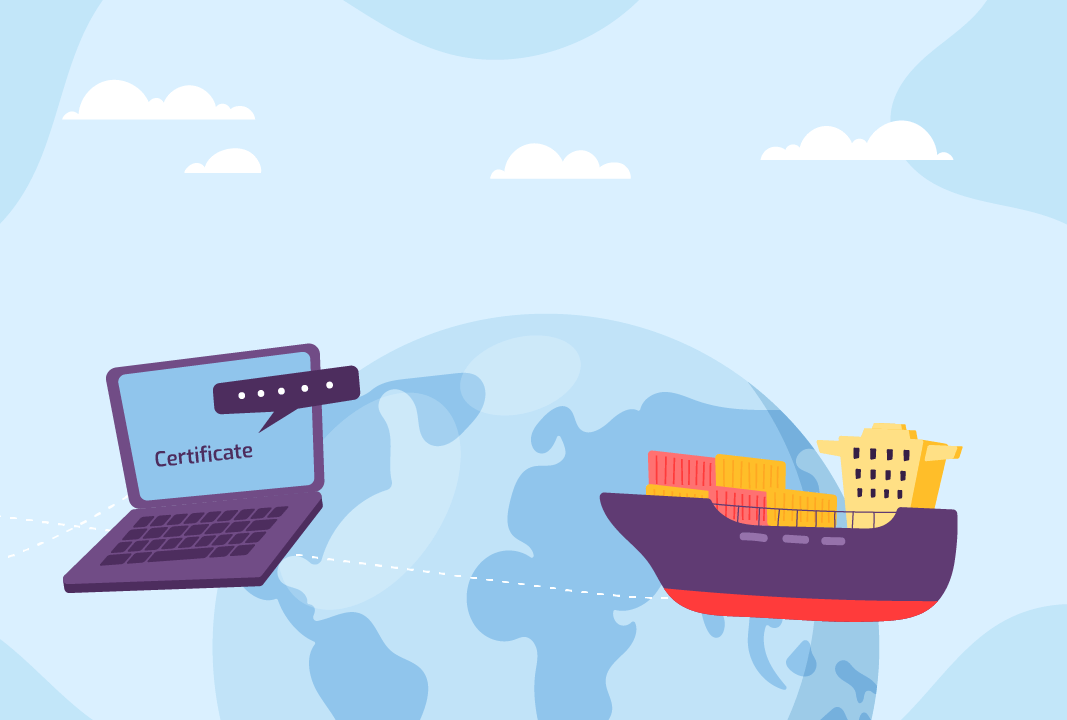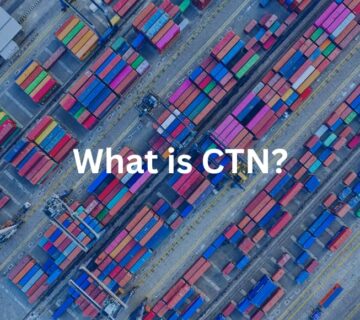What's in the Article?
- Understanding the Basics
- Enhancing Trade Efficiency with ECTN
- Diverse ECTN Requirements Across African Countries
- What is an ECTN?
- Detailed Breakdown of ECTN Information
- Key Components and Features of an ECTN
- Significance of Each Component
- The Importance of ECTN in Ensuring Cargo Security and Compliance
- ECTN’s Role in Facilitating Faster Customs Clearance
- How do I get my ECTN Certificate?
- Eligibility Criteria
- How to Determine ECTN Eligibility
- Step-by-Step Guide to the Application Process
- Tips for a Smooth Application Process
- Understanding Fees and Payment Methods for ECTN
- Who Issues ECTN?
- Identifying Authorized ECTN-Issuing Bodies
- The Role of Government and Regulatory Agencies in ECTN Issuance
- Government Oversight and Trade Compliance
- Collaborating with Freight Forwarders and Third-Party Service Providers for ECTN
Understanding the Basics
In the complex world of global trade, particularly in Africa, the Electronic Cargo Tracking Note (ECTN) has become a key element. This first section of our guide delves deeper into ECTN, its role in global trade, and its critical importance in African trade policies.
Enhancing Trade Efficiency with ECTN
The implementation of ECTN significantly boosts the efficiency of the shipping process. By providing advanced cargo information, it allows for better planning and allocation of resources at ports. This results in fewer delays and a more streamlined process, benefiting both the shipping companies and the receiving countries.
Diverse ECTN Requirements Across African Countries
Each African country tailors its ECTN requirements to suit its specific trade needs and challenges. These varying requirements reflect the diverse economic landscapes and regulatory frameworks across the continent. Understanding these differences is crucial for businesses engaged in African trade.
What is an ECTN?
In this section, we explore the essence of the Electronic Cargo Tracking Note (ECTN), its functions, and its critical role in ensuring cargo security and compliance in international trade. Check out the Frequently Asked Questions about the ECTN.
Detailed Breakdown of ECTN Information
An ECTN typically includes exhaustive details about the cargo, like its type, value, and the parties involved in the trade. This comprehensive data set is crucial for ensuring that all shipments comply with the relevant import and export regulations.
Key Components and Features of an ECTN
An ECTN comprises several essential elements:
- Cargo Description: In-depth information about the nature, quantity, and value of the goods being shipped.
- Shipment Details: Data regarding the shipping route, the vessel used, and the expected time of arrival.
- Exporter and Importer Information: Identification details of the parties involved in the trade, including their business credentials.
- Conformity and Compliance Data: Proof that the cargo complies with the regulations and standards of the destination country.
Significance of Each Component
Each component of the ECTN plays a pivotal role in the shipping process. The cargo description helps in assessing the necessary customs duties and taxes.
Shipment details aid in logistics planning, while exporter and importer information is vital for maintaining trade records. Conformity and compliance data ensure that the goods meet the required standards, avoiding potential legal issues upon arrival.
The Importance of ECTN in Ensuring Cargo Security and Compliance
The ECTN is indispensable for maintaining security and adherence to trade rules in international commerce. It preempts illegal activities by equipping authorities with advanced information about incoming shipments, thereby enhancing overall trade security.
ECTN’s Role in Facilitating Faster Customs Clearance
With ECTN, customs authorities can prepare for cargo’s arrival well in advance, significantly reducing delays and bottlenecks at ports. This proactive approach results in a more efficient and hassle-free customs clearance process, benefiting both the exporters and the importers.
How do I get my ECTN Certificate?
Securing an ECTN certificate is a vital step in ensuring your cargo complies with the regulations of the destination country in Africa. This section provides an extensive guide on the eligibility criteria, the application process, and the payment methods for acquiring an ECTN.
Eligibility Criteria
Before embarking on the application process, it’s essential to determine if your shipment requires an ECTN. Most goods shipped to African countries with ECTN mandates will need one. Verifying the specific requirements of the destination country is crucial, as they vary significantly.
How to Determine ECTN Eligibility
You can determine the ECTN eligibility by consulting with the relevant authorities or specialized service providers like GlobalCTN. They can provide updated information on the latest requirements and help you understand if your shipment falls under the ECTN mandate.
Step-by-Step Guide to the Application Process
- Gathering Necessary Documentation: Start by preparing all the required documents. These often include the commercial invoice, bill of lading, freight invoice, and packing list.
- Filling Out the Application Form: Carefully complete the ECTN application form. This form is typically accessible online on the ECTN issuer’s website or through your freight forwarder.
- Submission and Follow-up Procedures: After submitting the application and documents, monitor the status of your application and promptly address any inquiries from the issuing authority.
Tips for a Smooth Application Process
Ensure that all information provided is accurate and up-to-date. Incomplete or incorrect applications can lead to delays. Utilizing the services of experienced freight forwarders or agencies like GlobalCTN can streamline the process.
Understanding Fees and Payment Methods for ECTN
The cost of an ECTN varies based on the destination country and the nature of the cargo. Being aware of the fee structure and preparing for these expenses is crucial. Payment can usually be made through various methods, including bank transfers, credit cards, or online payment systems.
Who Issues ECTN?
Knowing who is responsible for issuing the Electronic Cargo Tracking Note (ECTN) is crucial for anyone involved in shipping goods to African countries. This section covers the authorized bodies for ECTN issuance and their roles in the process.
Identifying Authorized ECTN-Issuing Bodies
ECTNs are typically issued by bodies authorized by the government of the destination country. These include:
- Government Agencies: In some nations, government departments related to customs or trade are in charge of ECTN issuance.
- Private Companies: Some countries entrust ECTN issuance to specialized private companies that handle the application and validation processes.
The Role of Government and Regulatory Agencies in ECTN Issuance
Government and regulatory agencies play a crucial role in setting ECTN standards and procedures. They define the specific requirements for their country, oversee the process, and ensure compliance with their trade and security policies.
Government Oversight and Trade Compliance
These agencies ensure that the ECTN process aligns with international trade norms and national security concerns. Their oversight is vital for maintaining a balanced and fair trade environment.
Collaborating with Freight Forwarders and Third-Party Service Providers for ECTN
Exporters and importers often collaborate with freight forwarders or third-party service providers to obtain their ECTNs. These professionals are well-versed in the intricacies of the ECTN process and can provide invaluable support in ensuring that the application is complete and compliant with all requirements.






